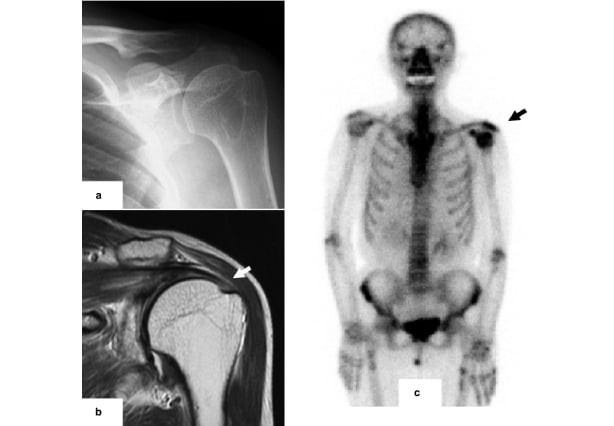- The rotator cuff helps stabilise the head of humerus in the glenoid
- Rotator Cuff tears can often be asymptomatic- it is estimated that 40-50% of over 60’s will have a tear, with 70% of these being asymptomatic
- The rotator cuff degenerates with age and is therefore, unable to cope with demands put on it- cuff tears are a normal part of aging
- Tears can be as a result of a trauma or degenerative
- It is not the tear that caused the pain; it is the altered biomechanics as a result of the tear which irritates the bursa/tendons and causes pain
- Evidence suggests there is no difference in outcome between surgical intervention and physiotherapy for treatment

Subjective history
Pain on the anterior GHJ, sometimes radiating into the bicep region
In a traumatic tear, there can be a trauma/ incident that caused the pain to start i.e. a fall
In degenerative tears, the onset is often insidious, or a relatively small task can cause tear, i.e. shutting the car door and therefore, goes un-noticed by the patient
Often the patient is unable to elevate their arm
The patient often reports limitations in function such as brushing hair, putting on coat and taking their hand behind their back
With a full thickness tear, the patient can often present pain free, with the main complaint being unable to elevate arm and reduced function
Painful to lay on the affected shoulder
Objective assessment
Reduced active range of movement (often not pain related)
Passive range of movement more than active
Rotator cuff weakness (either through range or part range depending on location of tear)
Often tenderness on palpation of supraspinatus insertion or rotator cuff muscle belly
References
Image from OpenI – Licensed by CC
Image from OpenI – Licensed by CC
Image from OpenI – Licensed by CC
Treatment
If there is a history of trauma please refer to T&O’ (please refer to the shoulder pathway
Modified rest
Referral for physiotherapy treatment to focus on improving;
Active range of movement
Rotator cuff strengthening
Scapular stability
In cases where a full thickness tear is suspected, the Anterior Deltoid regime will be given, whereby we work the deltoid to compensate for lack of power in the cuff
Physiotherapy can refer to secondary care if failure to improve despite being compliant with a rehabilitation programme and conservative management over a period of 3-6 months
References
Image from OpenI – Licensed by CC
Image from OpenI – Licensed by CC
Image from OpenI – Licensed by CC








